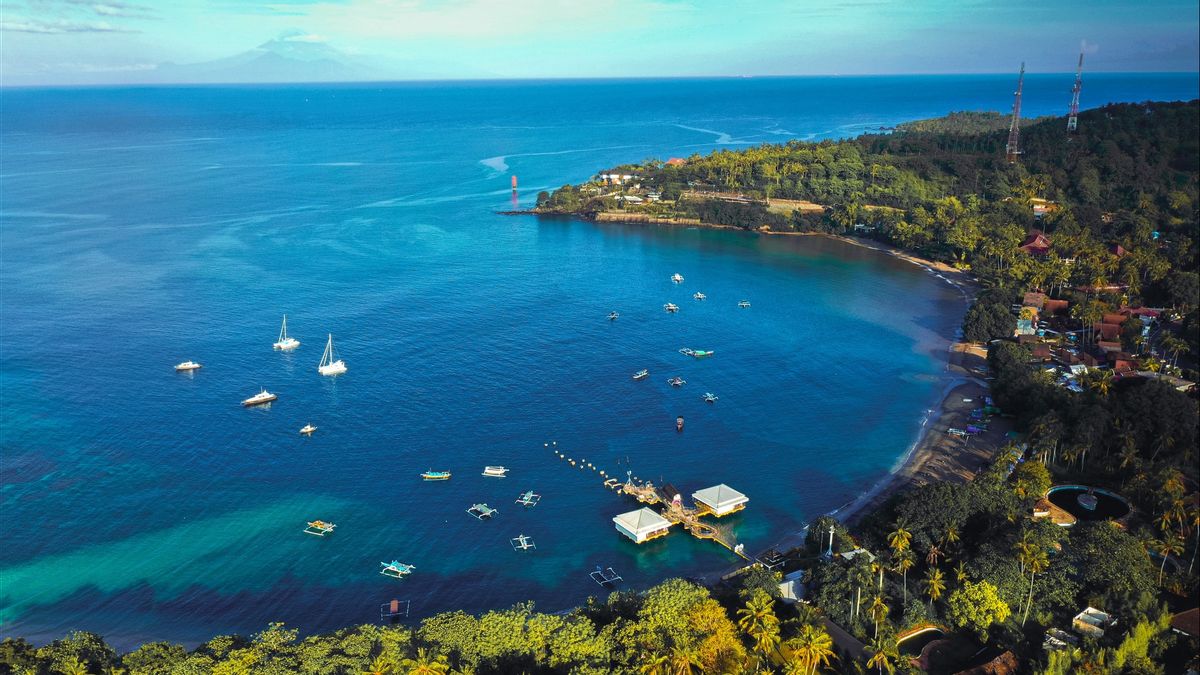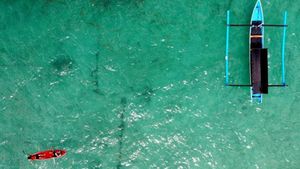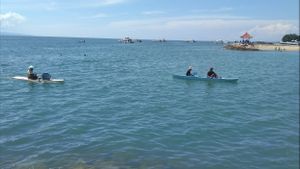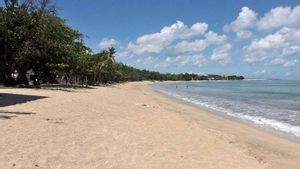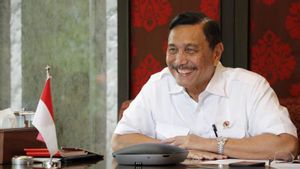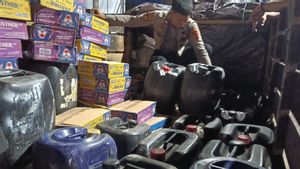JAKARTA - The Indonesian government has set a national target of reducing waste by 30 percent. Meanwhile, in 2025 the government targets a 70 percent reduction in marine debris. Achieving this target requires comprehensive collaboration from all stakeholders.
The Deputy for Coordination of Environmental and Forestry Management at the Coordinating Ministry for Maritime Affairs, Nani Hendiarti, said that the target of reducing waste accumulation by 30 percent is stated in Presidential Decree 97/2017.
"The Indonesian government has shown a very big commitment to be able to solve the problem of waste management in Indonesia, namely reducing waste accumulation by 30 percent and handling it by 70 percent", he said in a written statement, quoted on Wednesday, June 23.
Furthermore, said Nani, through Presidential Decree 83 of 2018 concerning the Handling of Marine Plastic Waste, a national target for handling plastic waste in the sea has been set at 70 percent by 2025.
To achieve the waste management target, Deputy Nani explained the need for collaboration between the central government and the Association of Indonesian Regency Governments (APKASI), and the Association of Indonesian City Governments (APEKSI) and supported by the Norwegian Embassy in Indonesia SYSTEMIQ in conducting a comprehensive study.
Furthermore, she said, this study aims to understand the root causes behind the problems of the waste management system in Indonesia, and has identified the main determining factors that can overcome the existing problems.
"From this study, three main determinants were identified for Indonesia to double its waste collection rate in Indonesia, namely stable and strong waste management governance, then adequate and stable funding for waste management and increased trash management capacity", she said.
Based on the study, Deputy Nani continued, she noted that there are at least three things that are recommended and important for our collective attention, including the need for strong institutions in the regions that are more professional, sustainable, and not dependent on regional leaders.
"Institutional models such as the Regional Public Service Agency/BLUD (at the Regional Technical Implementation Unit/UPTD) as a waste management institution are one option", she said.
Second, it is necessary to develop Minimum Service Standards (SPM) for waste management, which will result in standardization of services and financing, as well as stricter law enforcement.
Lastly, said Nani, the need for funding support or an adequate and stable waste management budget.
SEE ALSO:
"Currently, the average district/city government budget allocation for waste management is 0.7 percent of the total regional budget. It is necessary to find additional sources of funding apart from the government and local governments, among others from user fees and through collaboration with the private sector", he said.
According to Nani, the role of the Regional Government is certainly very significant. Because, based on Law 18 of 2018 concerning Waste Management, the greatest authority in waste management is in the Regency/City Government, and it is a mandatory government affair that must be carried out by the Regional Government.
Meanwhile, the Norwegian Ambassador to Indonesia Vegard Kaale again reminded that marine debris and plastic waste are a serious threat both to the ocean itself and to humans.
However, Kaale continued, what needs to be focused more at this time, one of which is garbage originating from land.
"Most of this marine and plastic waste originates on land, so we have to focus on that, because if we clean up without cleaning the land first, then we will clean the sea continuously without ending", he said on the same occasion.
"This is where teamwork is needed to help each other. Norway in this case fully supports it. Norway and Indonesia have the same interest in clean and healthy seas. I hope this cooperation can be carried out because we achieve more results than having to work alone", he said.
The English, Chinese, Japanese, Arabic, and French versions are automatically generated by the AI. So there may still be inaccuracies in translating, please always see Indonesian as our main language. (system supported by DigitalSiber.id)
